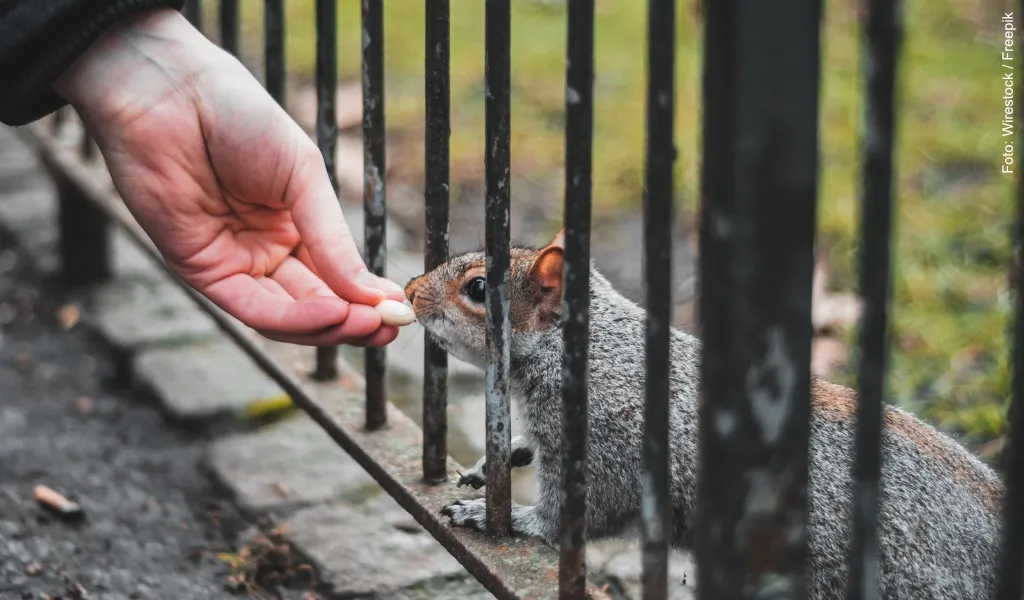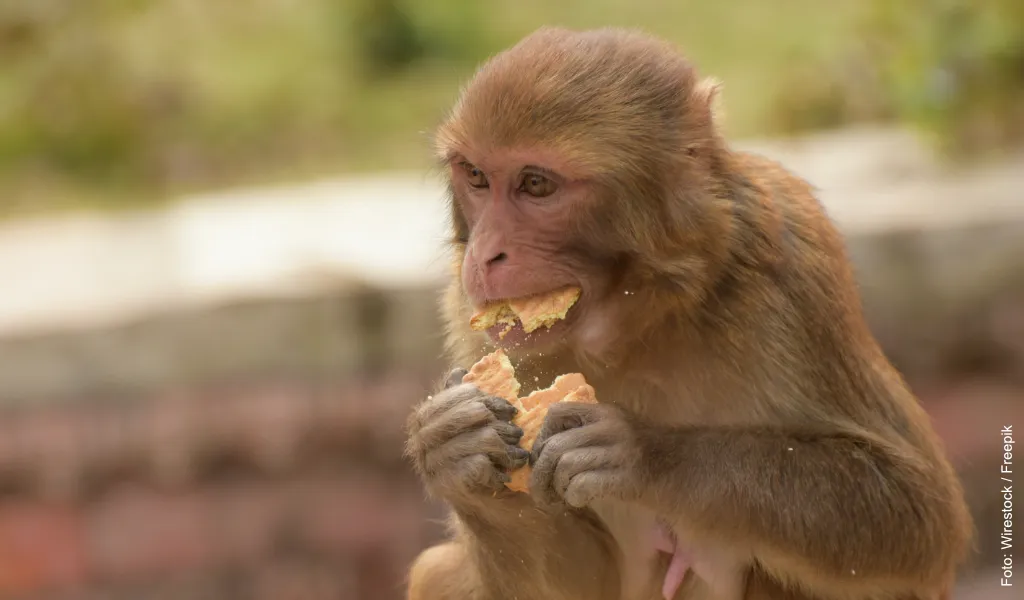The Principle 6 of Leave No Trace – Respect Wildlife reminds us of the importance of maintaining a healthy and responsible relationship with wildlife. Feeding them, although it may seem harmless or charming, can cause various health problems for the animals and profoundly alter their natural behavior, bringing consequences both for the individuals and for the balance of ecosystems.
Impact of improper feeding on wildlife
Studies show that wild animals living in urban areas and having constant contact with humans often develop health difficulties typical of humans, such as diabetes and high cholesterol. This condition arises due to the offering of unsuitable foods, such as bread, cookies, and other processed foods. Squirrels and birds inhabiting urban parks are common examples of this phenomenon, as they adopt a diet that does not match their natural nutritional needs when receiving this type of food. Even fruits, seemingly healthy, may not be part of the ideal diet for these animals, aggravating nutritional imbalance.
Animals that become dependent on food provided by humans face significant behavioral and physiological changes. The study by Rimbach et al. (2023) identified that gray squirrels living in urban environments show high blood glucose levels, suggesting a predisposition to chronic diseases such as diabetes. This change occurs due to the constant consumption of unsuitable food and the abandonment of natural foraging habits (the natural behavior by which animals search and gather food in their environment). Furthermore, this behavior can compromise the animals’ long-term survival, as it alters their feeding cycle and reduces their ability to adapt to the environment. The consequences go beyond harming the animals’ health, unbalancing local ecosystems, modifying the dynamics between species, and changing the natural behavior of fauna.

Loss of natural behaviors and dependency
When animals get used to receiving food from humans, their natural behaviors begin to change. They may stop searching for food on their own, lose the habit of migrating or storing food, and even become separated from their group or flock. Migratory birds are an example: if they find excess food in an area where they should only be passing through temporarily, they may interrupt their migration, which affects not only their health but also the ecosystem they are part of.
Another risk is that animals become dependent on the food provided by humans, increasing their vulnerability during periods of scarcity. An animal that has learned to wait for food in a park may have difficulty surviving in a natural environment without this intervention.

The role of improper waste disposal in indirect feeding
Although Principle 6 focuses directly on respecting wildlife and the need not feed animals, Principle 3 – Dispose of Waste Properly also plays an important and complementary role. Food scraps left in nature act as an indirect way of feeding animals, bringing the same health and behavioral problems mentioned earlier.
In addition, the accumulation of waste can attract insects and other animals, causing ecological imbalances. A practical example of this was observed by me during an ocean canoeing course given by Casa de Aventura, when we camped on an island frequently visited by fishermen. They left food scraps, such as rice and pasta, at the campsite, which resulted in an ant infestation. This type of situation shows how improper waste disposal can impact the balance of local fauna and attract species that would not normally be there.
Safety and conflicts with animals
In addition to the impacts on animals’ health and behavior, excessive proximity between humans and animals caused by improper feeding or waste can lead to dangerous conflicts. When animals lose their fear of people and begin to associate them with food, the chances of unwanted interactions increase, such as invasions of campsites or homes. In extreme cases, this can result in the capture or even euthanasia of animals considered problematic.
Education and awareness: the path to respecting wildlife
Educating people about the importance of respecting wildlife and not feeding animals, whether directly or indirectly through waste, is essential to ensure their health and the balance of ecosystems. Every small action counts, from avoiding feeding animals to ensuring that no waste is left in nature. By adopting these practices, we are preserving the natural behaviors of fauna and ensuring that future generations can enjoy healthy and balanced natural environments.
This post is also available in: Português (Portuguese (Brazil)) Español (Spanish)
